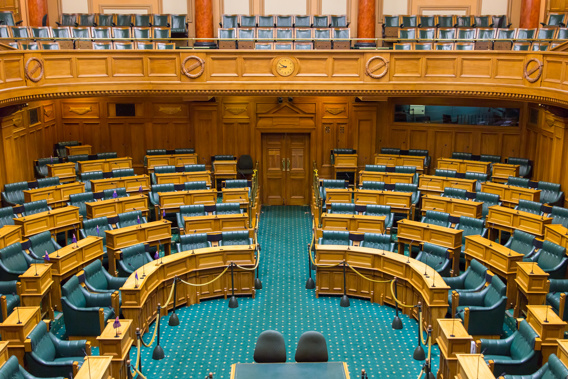
Questions raised in Parliament during Question Time on February 20 have triggered investigations in three Government departments about a potential leak of confidential information relating to the Government's fast-track consenting legislation.
During that Question Time, then Green Party co-leader James Shaw asked Chris Bishop as the minister responsible for RMA reform: “Can he confirm that there are no fewer than 59 projects currently proposed for inclusion in the primary legislation?"
Bishop responded, "I think it's actually more than 59, to be honest, because we are looking at a vast array of projects, and the precise list and exactly how that those processes work with the process we're setting up will be a decision for Cabinet, and it's not too far away".
A Ministry for the Environment spokesperson told ZB Plus yesterday, "The Ministry for the Environment, Department of Conservation and Ministry for Culture and Heritage commenced a review into whether confidential information had been inappropriately shared on Tuesday, 20 February. This was in response to Question Time earlier that day where a question was asked which suggested information had potentially been shared inappropriately.
"James Palmer, Secretary for the Environment advised Minister Bishop on February 20 of the review into whether information had been inappropriately shared, under the ‘no surprises’ principle. Investigations carried out by all three agencies have not identified any inappropriate behaviour by any agency."
Bishop told ZB Plus he had no further comment to make. "I was advised soon after it became clear that confidential information had made its way outside of government. The investigations are for the agencies to comment on.”
Shaw also appeared on RNZ's Morning Report on March 7 when he told Ingrid Hipkiss that the Greens had not seen the Bill, but understood it would “include a list of pre-approved projects that will be in the primary legislation and that at least one of those projects will have already been turned down by the Environment Court on environmental grounds and ministers have decided that they're going to override the Courts and approve it anyway...".
The Government’s fast track consenting Bill, which was tabled in Parliament this month, is one of the Government’s most significant 100-day plan milestones and promises a big shake-up of the way consents are granted for large projects in New Zealand.
Its ministers hope it will finally get ahead of New Zealand’s looming infrastructure deficit, while its detractors and officials warn the Bill will have large and unforeseen environmental impacts.
Projects enter the “fast-track” either by being included in the legislation itself, or by a later referral to a panel of ministers, comprising the infrastructure, regional development, and transport ministers who are currently Bishop, Shane Jones, and Simeon Brown.
The projects that will be included in the legislation are not in the current Bill. The Government said it will establish a Fast Track Advisory Group of independent experts to advise ministers on what projects should be included in the legislation. Cabinet will decide on the exact mix of projects, and they will be inserted into the schedules of the Bill through the select committee process, the Government said.
A spokesperson for the Green Party denied that any confidential information has been leaked to the party or any of their MPs.
Take your Radio, Podcasts and Music with you









